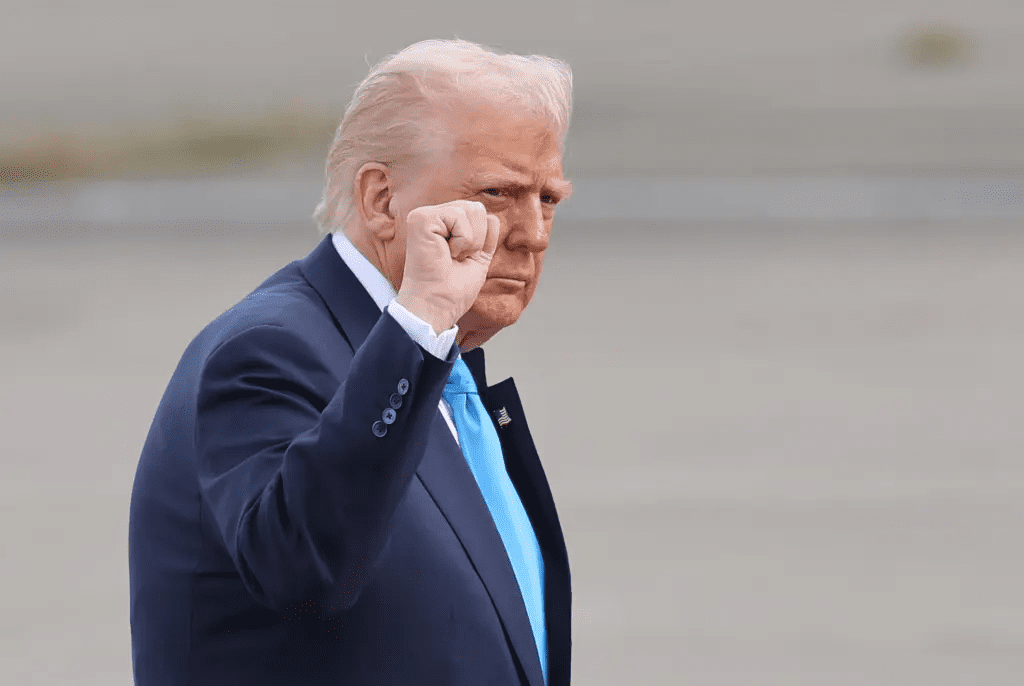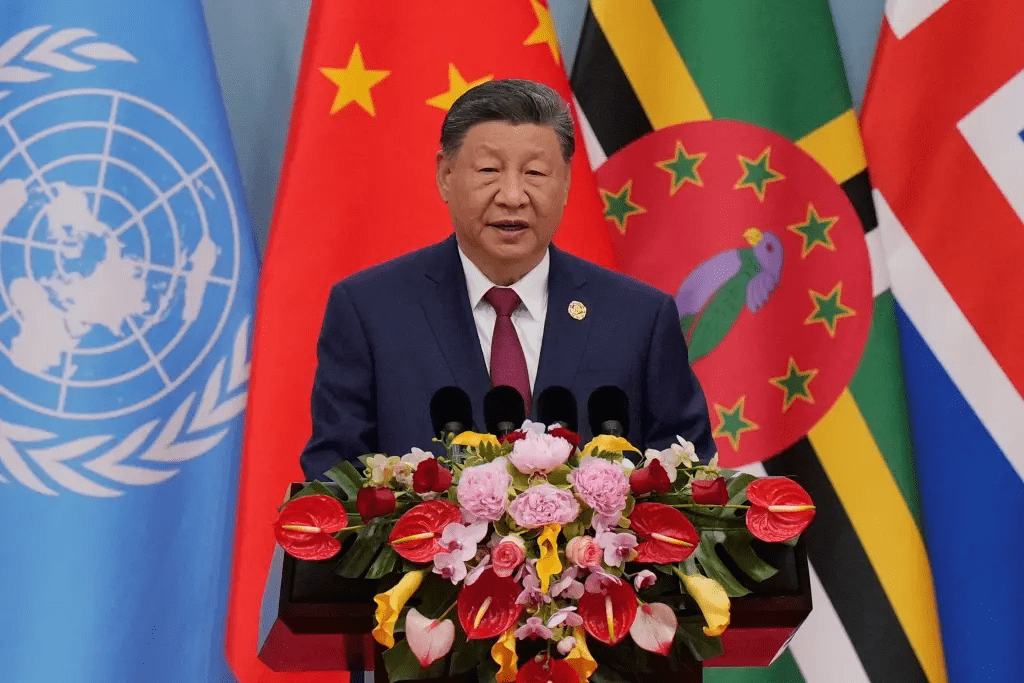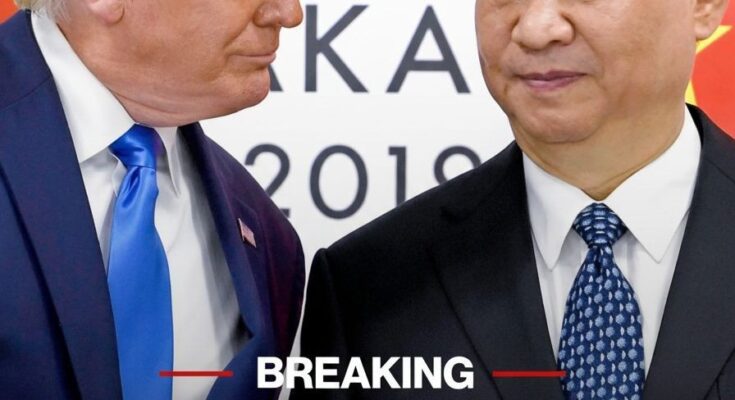President Trump caught on hot mic teasing plans for his high-stakes meeting with China’s Xi Jinping — says it’ll be “long” and “very, very satisfactory”
President Donald Trump is heading into one of the most closely watched meetings of his presidency — a high-stakes sit-down with Chinese President Xi Jinping scheduled for October 30 in Busan, South Korea. It will be the first face-to-face encounter between the two leaders since 2019, and Trump’s comments ahead of the summit suggest he is approaching it with both confidence and calculation.

While speaking informally aboard Air Force One before arriving in Asia, Trump was overheard on a hot mic telling aides that the meeting with Xi would be “very, very satisfactory,” adding that it was expected to be “long.” His remarks quickly circulated among reporters traveling with him, offering an early glimpse of his mindset heading into talks that could reshape the balance of U.S.–China relations.
The summit comes at a critical moment. After months of strained trade and political exchanges, both Washington and Beijing appear eager to cool tensions. The two governments recently signaled a tentative thaw with discussions on easing tariffs, rare-earth export restrictions, and efforts to tackle the global fentanyl crisis. Trump, who has repeatedly pushed for fairer trade and tougher oversight of Chinese imports, said his administration remains “focused on results, not rhetoric.”

One area expected to dominate the talks is trade fairness. Trump has said his goal is to bring manufacturing and energy advantages back to the United States while ensuring that China abides by long-term commitments to reduce export manipulation. In the days leading up to the meeting, he announced plans to lower tariffs on certain Chinese goods linked to fentanyl exports — framing the move as a strategic step to encourage China’s cooperation in curbing the flow of the deadly drug into America.
At the same time, the administration continues to pressure China on critical mineral production, semiconductor access, and its influence over global supply chains. While optimistic about a breakthrough, Trump told reporters that “America’s leverage has never been stronger,” pointing to steady job growth and record manufacturing investments secured through recent trade deals with allies like South Korea and Japan.

Experts see this summit as a test of Trump’s long-running “peace through strength” diplomacy. His strategy — blending assertive economic policy with personal outreach — has defined much of his approach to world leaders. “He’s going into this meeting believing results come from toughness and trust built face to face,” one foreign policy analyst said. “That’s been his hallmark from the start.”
Xi Jinping, for his part, has also signaled that China is prepared to “stabilize” its relationship with the United States, though tensions remain high over Taiwan, technology exports, and global influence in the Indo-Pacific. The two leaders are expected to meet for several hours, joined by senior economic and security officials from both sides.

For Trump, the meeting carries both global and domestic weight. Success in Busan could reinforce his image as a dealmaker capable of delivering measurable results on the world stage — a key message heading into 2026. His confident tone ahead of the meeting reflects not only optimism but a calculated understanding of the stakes. “We’re going to have a great meeting,” he told the press before departing. “I think everyone will be very satisfied.”

As anticipation builds, allies and critics alike are watching closely. Whether the summit produces concrete agreements or simply restores dialogue, the tone and outcome will shape the next chapter of U.S.–China relations. For now, Trump’s prediction of a “very, very satisfactory” result sets a bold expectation — one that could define the global conversation for months to come.

